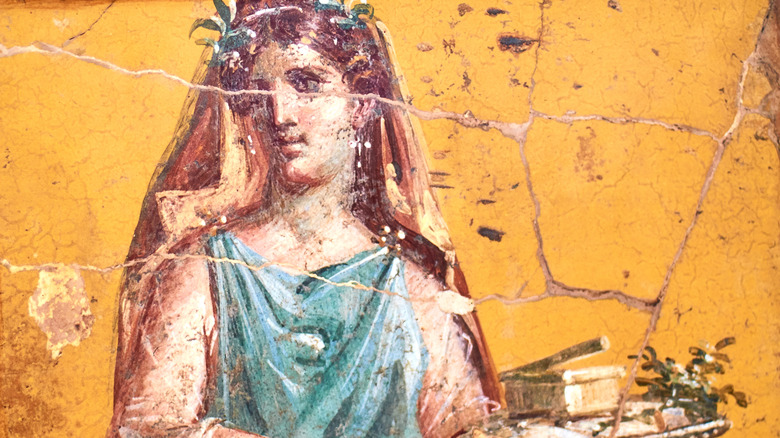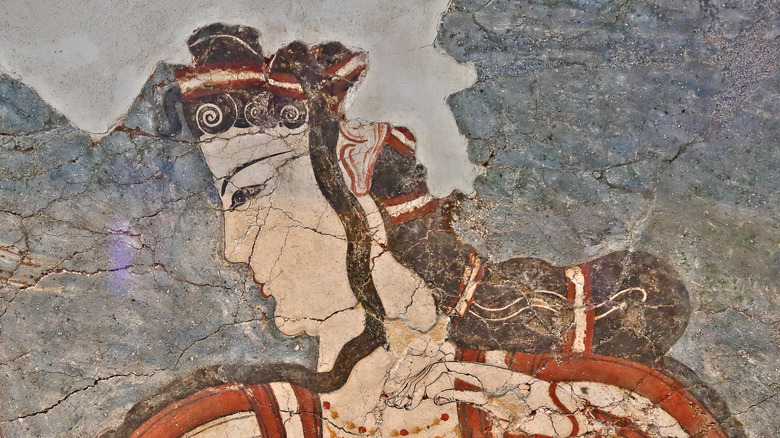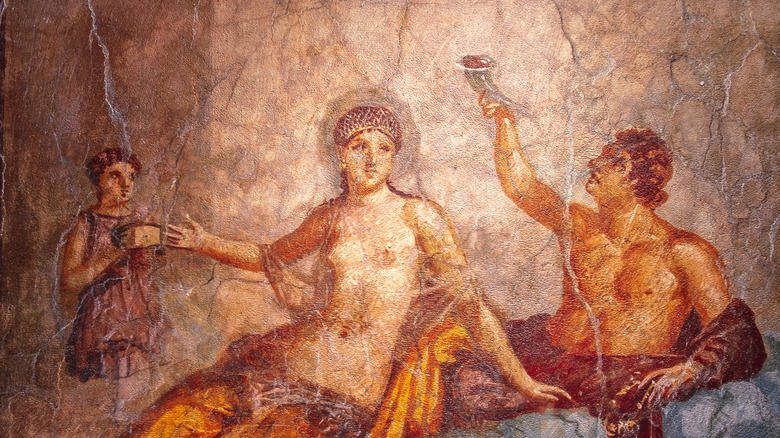How Mothers Were Celebrated In Ancient Greece And Rome
Mother's Day — the second Sunday in May, in the U.S. at least — is a time to send mom some flowers, drop by for a visit, or just give her a call. Although rarely a legal holiday but often a national holiday, Mother's Day is observed in more than 50 countries, and the origins of Mother's Day are typically traced to the time of the Civil War era in the U.S. and to the fourth Sunday of Lent in the U.K. Honoring the miracle of motherhood, though, is not a new concept, and even the ancient Greeks and Romans had their own way to say thanks to mom, as Office Holidays explains.
Women and mothers, in fact, played an important part in ancient Greek and Roman cosmology, much more so, perhaps, than in Christianity (Although in both Greek and Rome, many real women's lives were far from ideal, per World History). In Greece, for example, the Earth itself was a mother, called Gaia, and from her and her husband Uranus, the sky, came the Titans, the Cyclopes, the Giants, and Pontus, the sea, or so ancient Greek mythology tells us. Perhaps most importantly, though, from Gaia came Rhea, the mother of gods in the Greek pantheon. For their part, the Romans had the goddess Cybele. And it's in how the Greeks and Romans honored both Gaia and Rhea that some ancient world precedent for modern Mother's Day can be found, according to Greek Reporter.
The worship of Gaia and Rhea in ancient Greece
Per UniGuide, Gaia was one of the most important goddesses in ancient Greece, symbolized by fertility, womanhood, rebirth, agriculture, and so on. Motherhood and femininity, generally speaking, was also highly valued in ancient Greece, as evidenced by artifacts from the period celebrating the female form, per The Greek Herald. Greeks otherwise paid their respects to Gaia in almost every aspect of everyday life, both in nature and the ancient Greek holy site, Delphi. Statues of Gaia were found in temples dedicated to her granddaughter, Demeter (another female goddess, among many, in the Greek pantheon), and other locations.
It could be said, then, that in ancient Greece, every day was Mother's day, although no specific day on the calendar was given over just for that purpose. It's through worshiping Gaia's daughter Rhea — called the Mother of Gods by the Greeks and the goddess of nature and fertility — that an annual spring festival held back then around the same time as modern Mother's Day first took place. That, in addition to a number of temples and statues dedicated to Rhea, is what most ancient Greek experts point toward as a possible Greek-based origin for Mother's Day, per Greek Reporter.
The Romans goddess Cybele
Much like the Greeks, Romans had many female goddesses in their pantheon. Also like the Greeks, real women in ancient Roman society were not seen as equals, per PBS. One example of an ancient Roman goddess setting some precedent for Mother's Day is Cybele, the mistress of nature, and goddess of wildness and fertility. Cybele had some basis in Greek culture as well. She was otherwise seen as a healer, and Cybele was particularly respected by women. Her constant companion was a lion, as World History explains. Each spring, the cult of Cybele held a festival called Hilaria to honor the goddess, and interestingly, Hilaria is also seen as a possible basis for April Fools' Day.
If your idea of a Mother's Day brunch is a formal affair, then the Festival of Hilaria couldn't be more different. Although honoring Cybele, Hilaria was a time for merriment following a solemn procession with Cybele as its focus. Hilaria was held at the end of March each year, and it was also the first celebration following the vernal equinox, as the University of Chicago explains. From there, celebrations of motherhood died down until several hundred years later, when "Mothering Sunday" sprung up among early medieval Christians, via History. As can be seen, the ancient world did not have an exact corollary to modern Mother's Day. In several instances, though, the notion of honoring mothers can be found.


